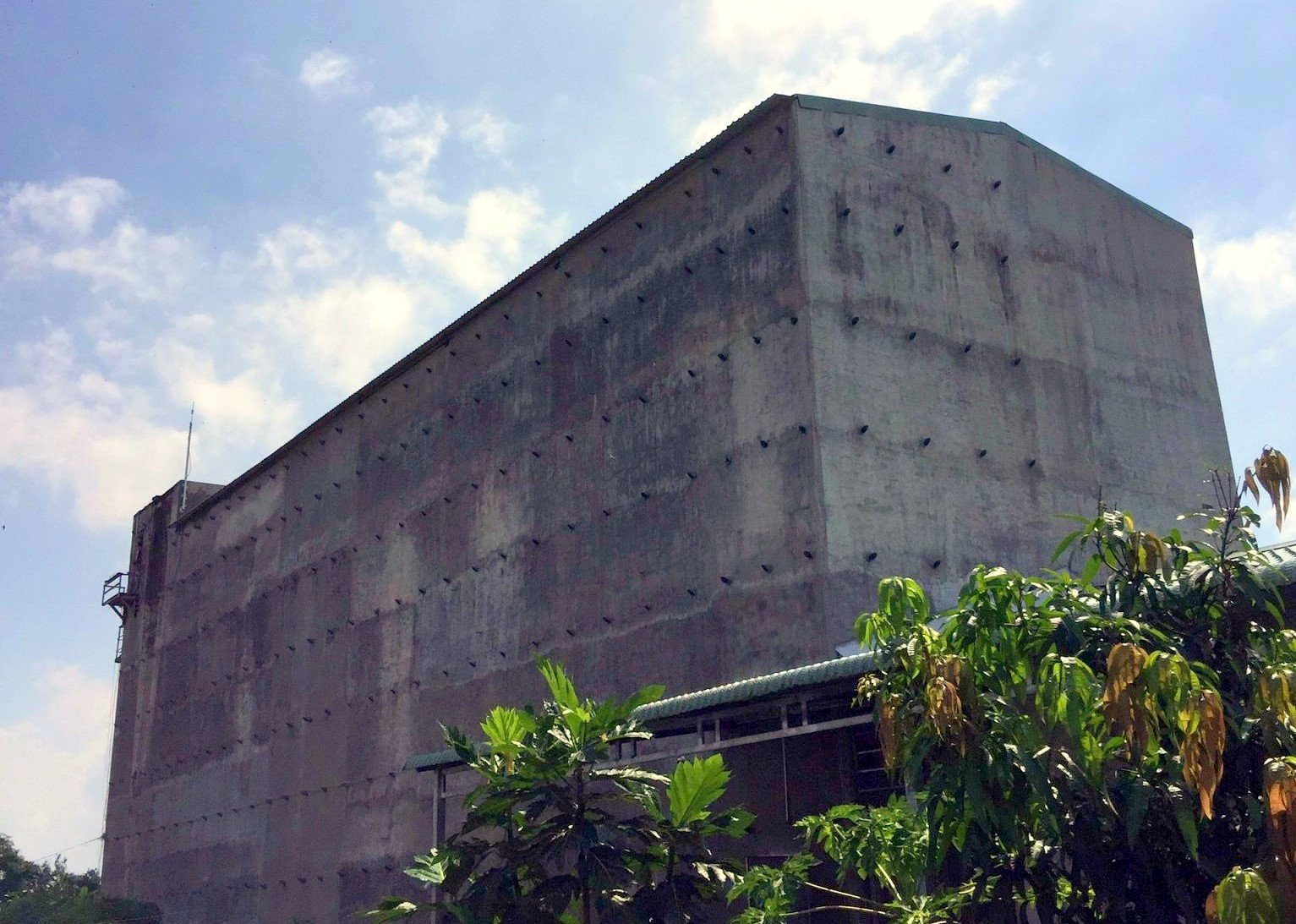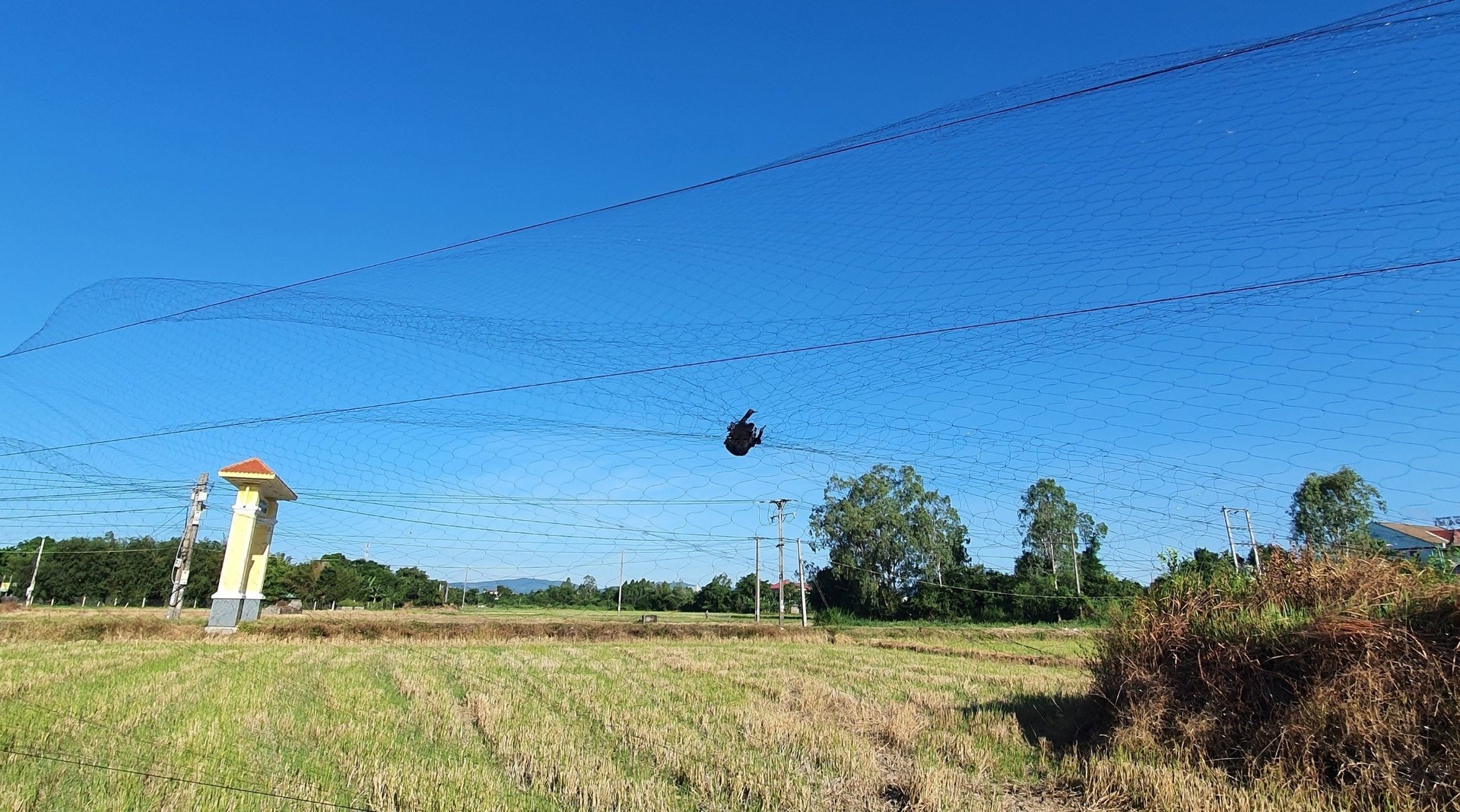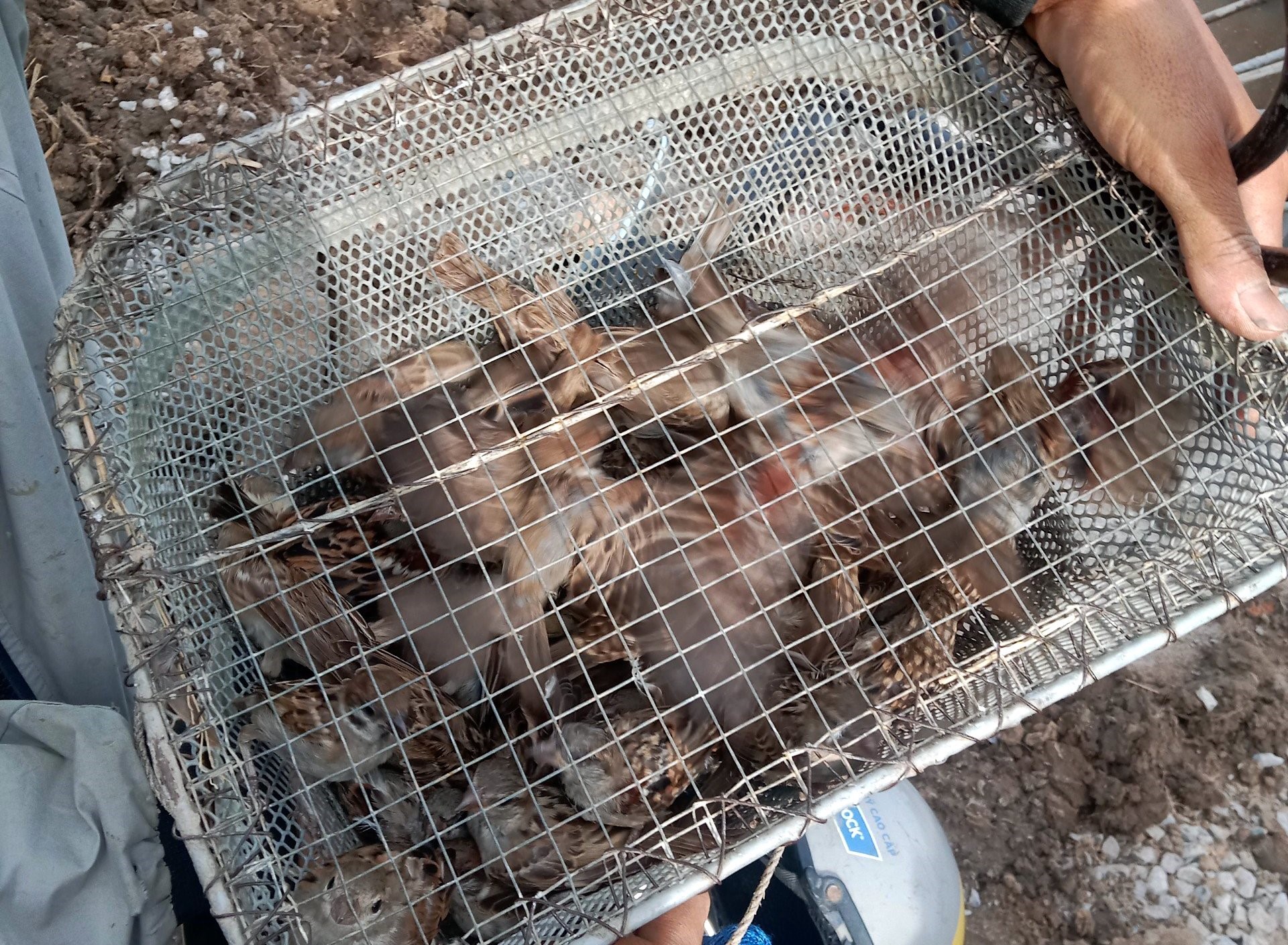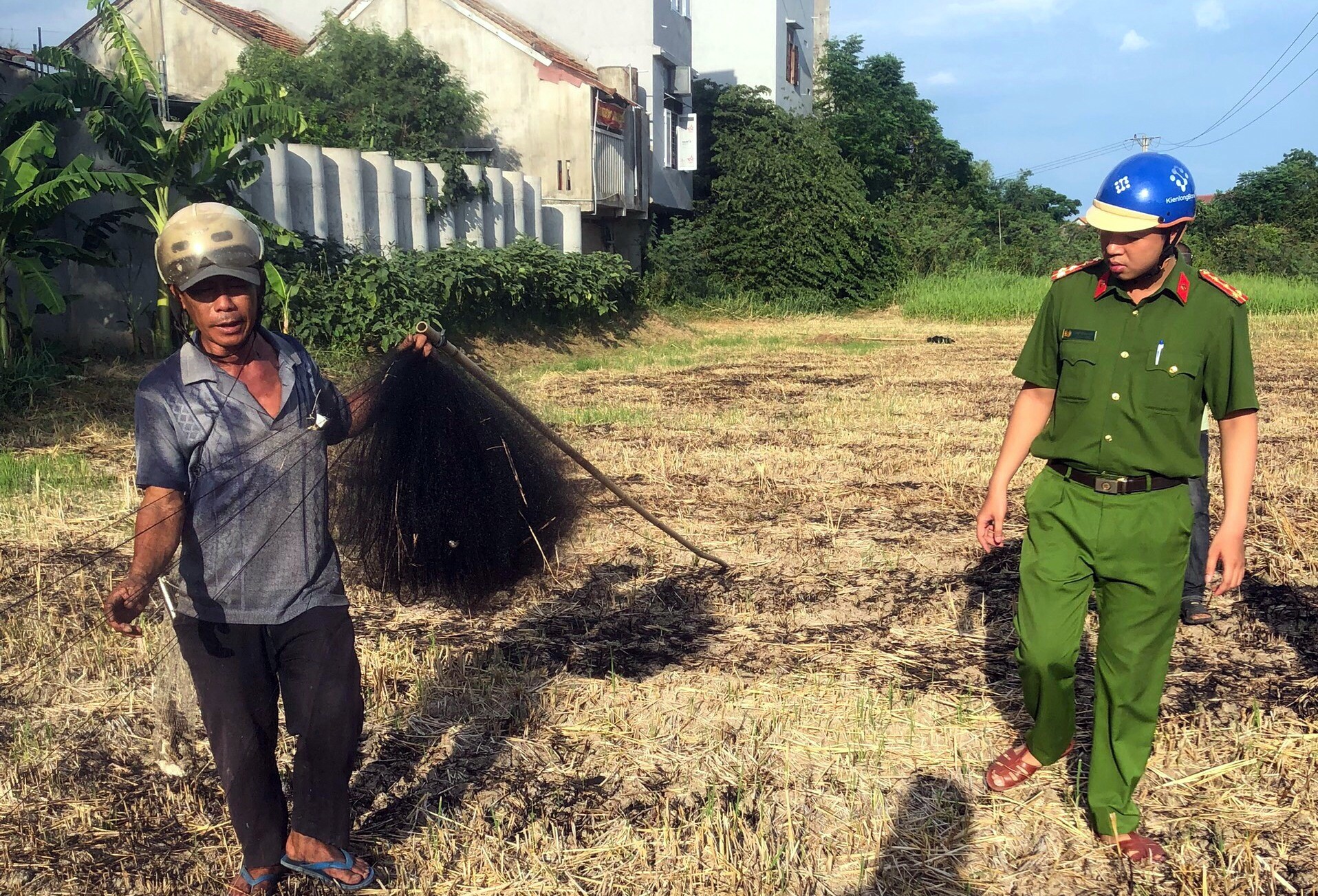May 24, 2025 | 16:22 GMT +7
May 24, 2025 | 16:22 GMT +7
Hotline: 0913.378.918
May 24, 2025 | 16:22 GMT +7
Hotline: 0913.378.918

A house to attract swiftlets in Phu Yen province. Photo: KS.
According to Mr. Pham Duy Khiem, President of the Phu Yen Swiftlet Farming Association and Vice President of the Vietnamese Swiftlet Farming Association, the profession of attracting swiftlets in Vietnam is concentrated in 42 provinces and cities. In which many provinces have large swiftlet houses, such as Kien Giang (3,000), An Giang (2,000), and Dong Nai (approximately 1,500).
In particular, recently, localities such as Long An, Tay Ninh, and some provinces adjacent to the border with Cambodia have also strongly developed swiftlet farming. But there are localities falling into a state of saturation in bird resources, as well as slow development of flocks due to limited food sources and widespread swiftlet trapping.
According to statistics, the whole country now has about 24,000 swiftlet houses, with an output of about 120 tons of swiftlet's nests. Through monitoring in previous years, this year’s swiftlet flocks, as well as the yield and quality of swiftlet’s nests, have somewhat decreased. Of which, the number of swiftlet flocks has decreased sharply in highly urbanized provinces along the coastal area from Binh Thuan to Da Nang.

In many places, people use invisible nets to trap swiftlets and wild birds. Photo: KS.
"Urbanization leads to a narrowing of the food area, and swiftlets have to fly far away to search for food. According to a monitoring experiment, swiftlets in Khanh Hoa province had to fly to Dong Nai province to search for food, flying away in the morning and flying back at night.
"With such a long flight distance, the amount of food stored for young birds will no longer be available, so when they can fly, most of them will choose to move to another land with abundant food. Consequently, swamps, ponds, canals, rivers, streams, or planting areas that attract a lot of insects are favorite places for swiftlets to search for food and live," said Mr. Pham Duy Khiem.
Another big factor causing the significant decline of swiftlet flocks in many Central provinces is hunting swiftlets and wild birds. They use invisible nets for trapping in the fields and other places where the swiftlet flocks search for food.
According to Mr. Pham Duy Khiem, some provinces with the most swiftlet and wild bird trapping include La Gi (Binh Thuan), Dong Nai, Binh Duong, Dak Lak, Phu Yen, etc. As for other provinces and cities, bird trapping also occurs, but more slightly.

A lot of wild birds are trapped in the invisible net. Photo: KS.
According to the Phu Yen Swiftlet Farming Association, since the beginning of the year, there have been eight cases of spreading nets to trap swiftlets and wild birds in the province, the hottest in Phu Hoa and Tay Hoa districts.
In which two cases occurring in Hoa An commune (Phu Hoa) were handled by the authorities in accordance with the law. Accordingly, the violating objects were recorded and confiscated exhibits, including motorbikes, over 600m of invisible net, and many other tools to carry out the act of trapping swiftlets and exterminating all other birds caught in the net.
Regarding the issue of swiftlet hunting, the President of the Phu Yen Swiftlet Farming Association and Vice President of the Vietnam Swiftlet Farming Association said that it is necessary to thoroughly handle it. Localities at the commune and ward level must have strict sanctions to punish violators and not let the situation when people come to authorities to report on their net spread for bird trapping after everything has been finished.
On the other hand, localities should continue to disseminate information on the trapping and extermination of swiftlets and wild birds with invisible nets to make people aware of this wrongdoing. The reason is that at present, many people still think "birds of the sky, fish of the water", so in their opinion, there is no problem of spreading traps.

The authority made a record and confiscated exhibits from the swiftlet trapping case in Phu Hoa district. Photo: KS.
It is known that on June 30, the Prime Minister signed and promulgated Official Dispatch No. 595 on strengthening the implementation of solutions to prevent illegal hunting, manage swiftlet farming, and boost exports of swiftlet's nest products.
Accordingly, the Prime Minister requested the Chairman of the People's Committees of the provinces and municipal cities to direct authorities in the area to drastically and synchronously implement solutions to prevent and stop the situation of illegal swiftlet hunting.
According to Mr. Le Thanh Dai, President of the Vietnamese Swiftlet Farming Association, the people’s destructive actions called livelihoods created a risk of declining swiftlet flocks in some localities, greatly affecting the conservation and development of rare and precious animal species bestowed on us by nature.
Swiftlets are a species that cannot be found everywhere, and we cannot raise and imprison them. Although swiftlets are very loyal to their living places and give life to precious items, they are also very sensitive to their surrounding environment and quickly move away from dangerous places.
Therefore, let's join hands to care for, protect, and cherish swiftlets so that future generations will forever enjoy the taste and nutritional value of the swiftlet's nests, which are considered a panacea.
Translated by Huyen Vu Thu

(VAN) In the tranquil wetlands of Van Long, there are quiet souls who guard the forests, nurture the waters, and oversee every bird and troop of langurs as protecting the essence of a living heritage.

(VAN) WWF, GIZ, IUCN, UNDP call for biodiversity conservation and sustainable development must be regarded as a unity in strategies for a green future.

(VAN) On celebration of International Day for Biological Diversity, Deputy Minister Nguyen Quoc Tri called for practical actions to address nature and biodiversity conservation.

(VAN) Dr. Hoang Thi Thanh Nhan – Deputy Director of the Nature and Biodiversity Conservation Agency – highlighted this on the International Day for Biological Diversity, May 22, 2025.
![Ho Chi Minh city adapts to climate change: [2] Accelerating action](https://t.ex-cdn.com/nongnghiepmoitruong.vn/608w/files/chiqk/2025/05/22/4024-4220-bien-doi-khi-hau-1-100626_766.jpg)
(VAN) Clearly recognizing the challenges posed by climate change, Ho Chi Minh city has swiftly shaped its policies and implemented practical solutions to adapt.

(VAN) Rice straw is no longer just a discarded byproduct, but it is becoming a green resource that helps farmers in the Mekong Delta reduce emissions and promote circular, sustainable agriculture.

(VAN) Other Effective Area-based Conservation Measures (OECMs) are solutions that contribute effectively to achieving the goals of the Kunming–Montreal Global Biodiversity Framework.